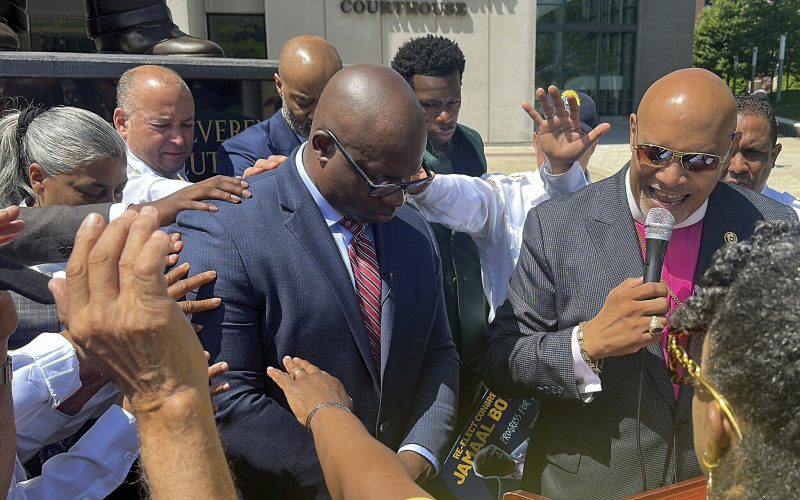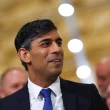The battleground for the New York Democratic primary has shifted dramatically with the Gaza war looming large over the political landscape. At the heart of this contest is the clash between progressive insurgents, often represented by figures like Alexandria Ocasio-Cortez and her allies in “The Squad,” and the influential pro-Israel lobbying group, AIPAC (American Israel Public Affairs Committee). The primary, traditionally a stage for local issues, has now become a microcosm of broader debates surrounding foreign policy, progressive values, and the Israeli-Palestinian conflict.
The Rise of The Squad

In recent years, a new wave of progressive voices has emerged within the Democratic Party, challenging established norms and advocating for bold policy changes. Central to this movement are figures like Alexandria Ocasio-Cortez, Ilhan Omar, Rashida Tlaib, and Ayanna Pressley, collectively known as “The Squad.” Their rise to prominence has been fueled by grassroots activism, social media outreach, and a staunch commitment to progressive values such as Medicare for All, the Green New Deal, and criminal justice reform.
AIPAC’s Influence
AIPAC, on the other hand, has long been a dominant force in American politics, particularly within the Democratic Party. With a mission to strengthen the U.S.-Israel relationship, AIPAC wields considerable influence through its extensive network of donors, lobbyists, and political allies. Historically, candidates seeking office, especially in districts with significant Jewish populations, have courted AIPAC’s support, viewing it as crucial to their electoral success.
The Gaza War’s Impact
The recent escalation of violence in Gaza, resulting in widespread destruction and loss of life, has reignited debates over U.S. policy towards Israel and Palestine. While AIPAC has traditionally advocated for unwavering support for Israel, including military aid and diplomatic backing, The Squad has been more critical, calling for a reassessment of U.S. assistance in light of human rights abuses and violations of international law.
The intensity of this primary contest reflects the changing dynamics within the Democratic Party, where traditional alliances are being tested and new voices are demanding to be heard. The Squad’s unapologetically progressive stance has resonated with a growing segment of the electorate disillusioned with establishment politics, while AIPAC’s formidable influence continues to shape policy debates behind the scenes. As the Gaza war casts a shadow over the primary campaign, candidates are under pressure to articulate clear positions on the Israeli-Palestinian conflict and navigate the delicate balance between principles and pragmatism.
Moreover, the outcome of the New York Democratic primary could have ripple effects far beyond the state’s borders, influencing the trajectory of Democratic politics at the national level. With the party grappling with internal divisions over issues ranging from healthcare to climate change, the showdown between The Squad and AIPAC offers a glimpse into the broader struggle for the soul of the Democratic Party. As voters head to the polls, they are faced with a choice that extends beyond individual candidates, symbolizing competing visions for the future of progressive politics in America.
Analysis Table:
| Aspect | The Squad | AIPAC |
|---|---|---|
| Stance on Israel | Criticizes Israeli policies, calls for | Advocates for unwavering support for |
| accountability for human rights abuses. | Israel, opposes any criticism of its | |
| actions. | ||
| Approach to Aid | Calls for conditioning aid to Israel on | Opposes any conditions on U.S. assistance |
| compliance with human rights standards. | to Israel. | |
| Influence in Party | Represents the progressive wing of the | Holds significant sway within the |
| Democratic Party, particularly among | Democratic Party establishment, with | |
| younger and more diverse voters. | strong ties to donors and lobbyists. | |
| Response to Gaza War | Condemns Israeli airstrikes and calls for | Defends Israel’s right to self-defense |
| an immediate ceasefire. | and blames Hamas for initiating the | |
| conflict. |
Comparative Table:
| Aspect | The Squad | AIPAC |
|---|---|---|
| Ideological Alignment | Progressive, left-wing | Pro-Israel, centrist |
| Approach to Foreign Policy | Advocates for diplomacy and | Prioritizes U.S.-Israel relationship |
| multilateralism | and military aid | |
| Youth Appeal | Popular among younger voters, | Tends to have more influence among |
| particularly millennials and | older, establishment Democrats | |
| Gen Z | ||
| Media Presence | Active on social media, often | Operates more behind the scenes, |
| utilizes platforms like Twitter | with less public visibility | |
| Political Strategy | Relies on grassroots mobilization | Leverages lobbying efforts and |
| and community organizing | campaign donations |
Conclusion
The clash between The Squad and AIPAC in the New York Democratic primary underscores broader divisions within the party regarding foreign policy and progressive values. As candidates vie for support, they must navigate competing interests, from progressive activists demanding accountability for human rights abuses to pro-Israel donors and lobbyists seeking unwavering support for the Israeli government. Ultimately, the outcome of the primary will not only shape the future of New York politics but also serve as a barometer for the evolving dynamics of the Democratic Party on the national stage.












